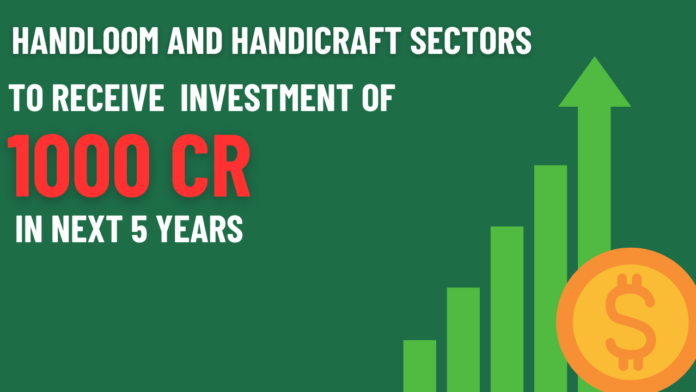The handloom and handicraft sector, known for its rich cultural heritage, encompasses a diverse range of traditional crafts produced by skilled artisans. These crafts include handwoven textiles, intricate pottery, and exquisite jewelry, reflecting the unique artistic identity of various regions.
Significance of the Rs 1,000 Crore Investment
The substantial financial injection into the handloom and handicraft sector holds immense significance, acting as a catalyst for economic growth, cultural preservation, and the empowerment of local artisans.
Overview of the News Article
Before delving into the details of this groundbreaking investment, let’s first understand the current state of the handloom and handicraft sector and the challenges it faces.
Government’s Initiative
Details of the Rs 1,000 Crore Investment Plan
The government’s commitment to the handloom and handicraft sector involves a comprehensive plan, outlining specific areas of focus and strategies for sustainable growth.
Objectives and Goals Set by the Government
With the investment, the government aims to achieve multifaceted goals, including job creation, skill development, and the promotion of handcrafted products both domestically and globally.
Expected Impact on the Handloom and Handicraft Sector
The investment’s impact is expected to be transformative, breathing new life into traditional crafts, empowering artisans, and positioning the handloom and handicraft sector as a beacon of cultural and economic sustainability.
Current State of Handloom and Handicraft Sector
Challenges Faced by the Sector
Despite its cultural importance, the handloom and handicraft sector grapple with challenges such as limited market access, outdated techniques, and competition from mass-produced goods. The investment comes at a crucial time to address and overcome these obstacles.
Importance of Revitalizing Traditional Crafts
Revitalizing traditional crafts is not just about preserving art; it’s about sustaining livelihoods, promoting cultural identity, and fostering economic development in rural and marginalized communities.
Economic Contribution of the Handloom and Handicraft Industry
Beyond cultural value, the handloom and handicraft industry significantly contribute to the national economy. The sector employs millions, providing a source of income and fostering entrepreneurship.
Quick Review:
Q1: What is the significance of the Rs 1,000 crore investment in handloom and handicrafts?
A: The Rs 1,000 crore investment holds immense significance as it serves as a substantial financial boost to the handloom and handicraft sector. This funding is poised to address challenges, foster economic growth, preserve cultural heritage, and empower local artisans. It signifies a commitment to the sustainability and revitalization of traditional crafts.
Q2: How will the funds be allocated to benefit artisans and weavers?
A: The allocation of funds involves a multifaceted approach. A significant portion will be directed towards modernizing handloom practices, improving infrastructure, and providing advanced training to weavers. Additionally, funds will be earmarked for the promotion of handicrafts, skill development programs, and initiatives specifically designed to empower women artisans. Transparent utilization is ensured to maximize the positive impact on the artisan community.

